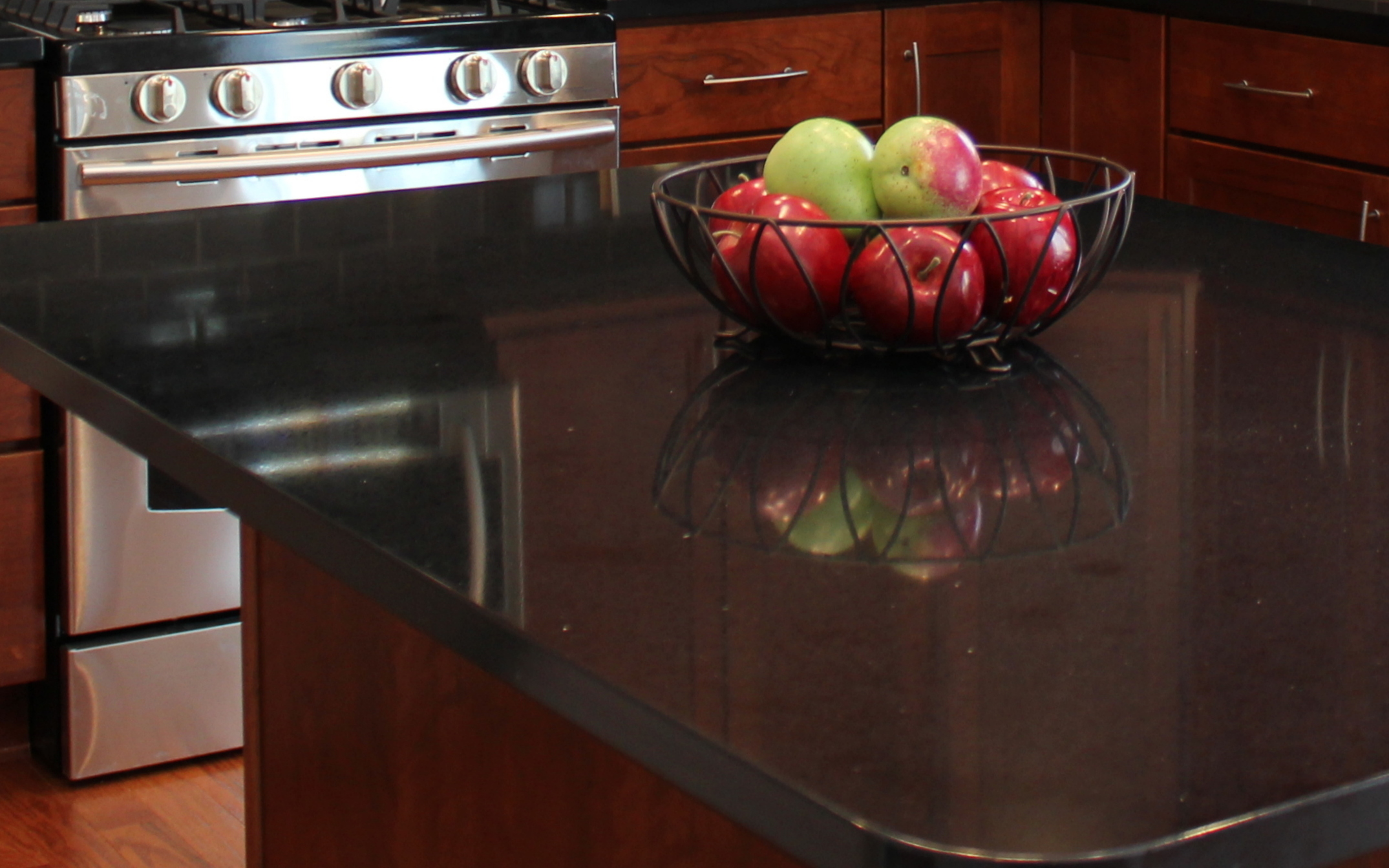
Back in the 90’s, granite became the status symbol in the world of countertops but in the last several years, quartz gained ground and took over in popularity. And we’re often asked, “What’s the difference?” Here's a primer.
Granite is a 100% natural stone material that forms under immense pressure deep within the earth over millions of years. It consists of different minerals that give it both color and texture, but quartz and feldspar are always components.
Huge blocks of granite are cut from quarries and then literally sliced into slabs. As a 100% natural material, it naturally has veins and striations and no two slabs are ever exactly alike.
Most quartz countertops today are engineered. That is, they are created through a manufacturing process that combines ground natural quartz with polymer resins that bind the quartz particles together. The result is natural looking stone that has a more uniform appearance than granite.
In this article, engineered quartz is simply referred to as quartz.
DURABILITY
Both granite and quartz are extremely strong materials that stand up well to daily use. On the hardness scale (known as the Mohs Hardness Scale) quartz rates slightly higher.
STAIN AND BACTERIA RESISTANCE
Both quartz and granite are stain resistant but quartz wins out because it is non-porous and non-absorbent.
Granite, on the other hand, is porous. If not properly sealed, stains or bacteria can form in the small spaces or fissures. It is harder for pathogens to develop on quartz because of its non-porous aspect.
MAINTENANCE
Also because it is non-porous, quartz never needs sealing.
Granite countertops are sealed prior to installation but should be sealed periodically.
HEAT RESISTANCE
Though both granite and quartz are heat resistant, we always recommend placing trivets under hot pots.
REPAIRING
Both materials are extremely difficult to repair. Rounded edges and corners are preferable as square corners and edges are more likely to chip off and may be unrepairable.
COST
Granite prices vary widely depending on a number of factors, but – generally speaking - quartz will cost more than the common granites.
WEIGHT
Quartz is heavier than granite but both are heavy materials and require well made cabinets for support.
SO WHICH TO CHOOSE?
Both granite and quartz make beautiful countertops that will provide years of durability.
My best advice? Choose what you will love seeing every day.
- Betsy de Parry, VP, Sales and Marketing
